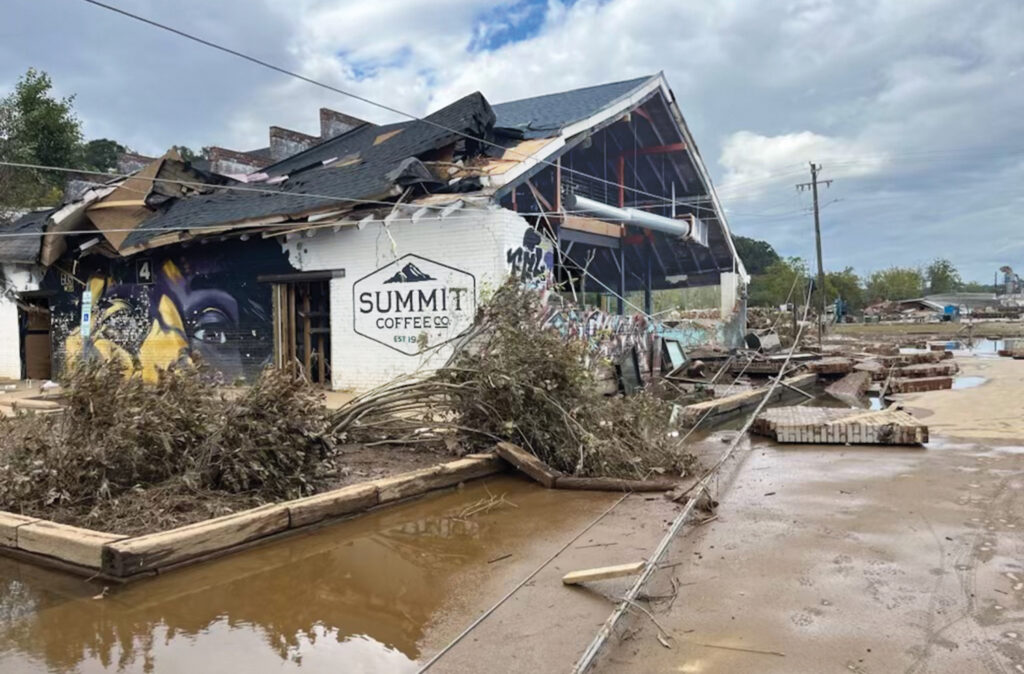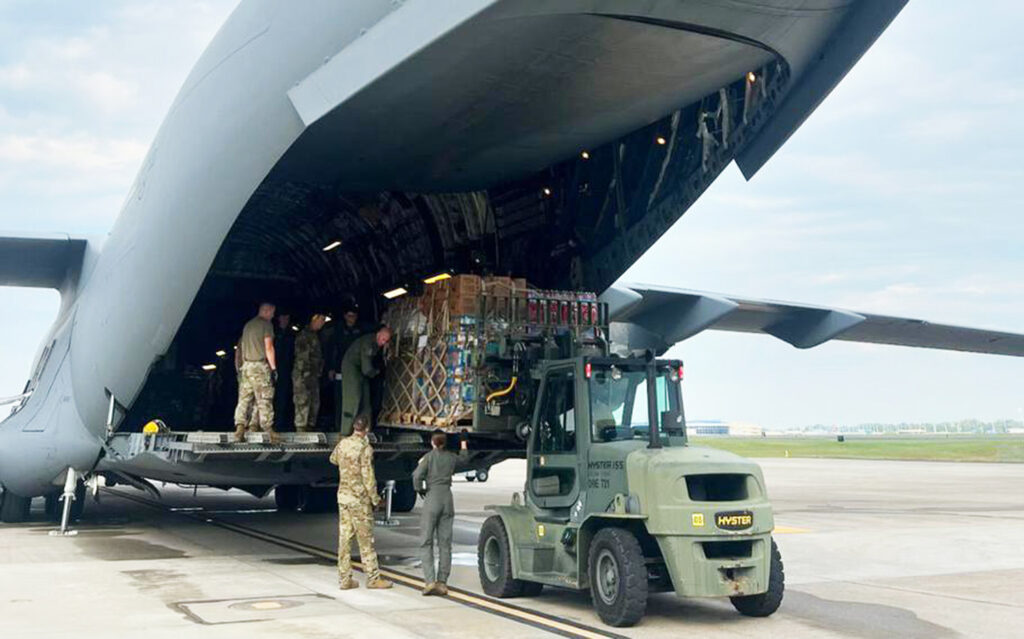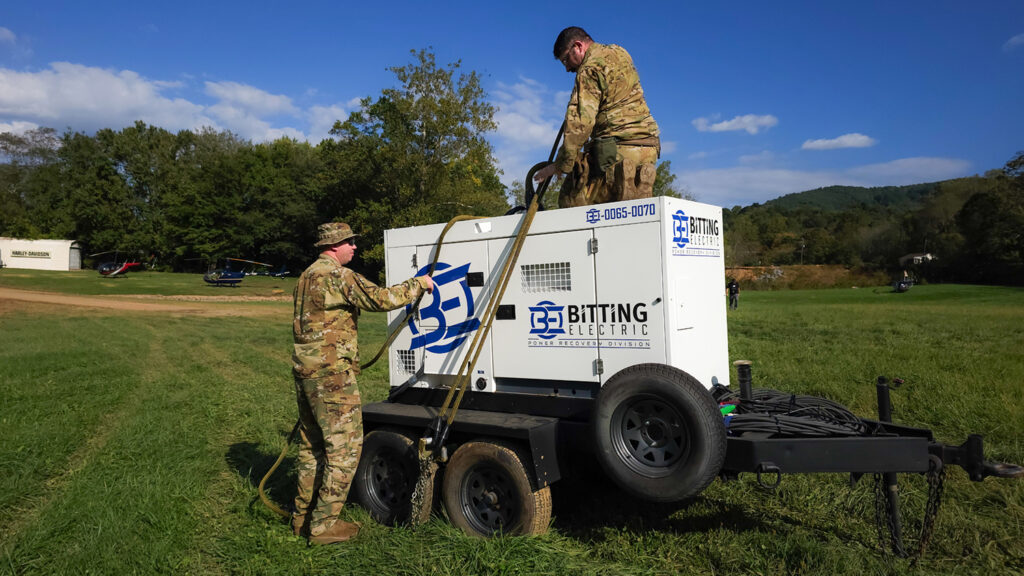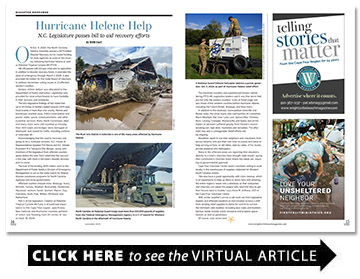Hurricane Helene Help
N.C. Legislature passes bill to aid recovery efforts
BY WBM Staff

On Oct. 9, 2024, the North Carolina General Assembly passed a $273 million Disaster Recovery Act to create funding for state agencies to assist in the recovery following Hurricane Helene as well as Potential Tropical Cyclone #8 (PTCS).
HB 149 passed with 113 aye votes and no opposition. In addition to disaster recovery funds, it extended the state of emergency through March 1, 2025. It also provided $5 million for the State Board of Elections to address November voting issues in 13 affected western counties.
Sixteen million dollars was allocated to the Department of Public Instruction. Legislation also provided for local school boards to have flexibility in their recovery and schedules.
The bill’s legislative findings of fact noted that up to 30 inches of rainfall created several 1,000-year flood events in more than one county. Homes and businesses washed away. Entire communities lost power, water, sewer, communications, and other essential services. Many North Carolinians died and many more were still counted as missing. Over 400 roads and bridges were damaged or destroyed, and closed for traffic, including portions of Interstate 40.
Acknowledging that the road to recovery was going to be a multiyear process, N.C. House of Representatives Speaker Tim Moore and N.C. Senate President Pro Tempore Phil Berger, along with members of the legislature from affected counties, spoke before the vote. Each noted that this was just a first step, with more in the state’s disaster recovery plan to come.
The bulk of the funding, $250 million, went to the Department of Public Safety’s Division of Emergency Management to act as the state match for federal disaster assistance programs for North Carolina agencies and local governments.

Affected counties include Ashe, Watauga, Avery, Mitchell, Yancey, Madison, Buncombe, Henderson, Haywood, Jackson, Swain, Graham, Macon, Clay, Cherokee, Nash, Polk, Wilkes, McDowell and Rutherford.
Part V of the legislation, Creation of Potential Tropical Cyclone #8 Fund, is of particular importance to the Cape Fear region, specifically New Hanover and Brunswick counties, portions of which saw flooding from 20 inches of rain on Sept. 16, 2024.
The mountain counties also experienced historic rainfall during PTCS #8. Legislative leaders said it was that storm that put not only the eastern counties’ rivers at flood stage, but also those of the western counties before Hurricane Helene, including the French Broad, Watauga, and New rivers.
In addition to the relatively cosmopolitan Asheville and Boone areas, the small towns and communities of Cullowhee, Black Mountain, Bat Cave, Lake Lure, Spruce Pine, Chimney Rock, Lansing, Crumpler, Warrensville and Sparta and all the hollers in between suffered greatly from Helene’s record-breaking rain, high wind, mudslides and tornadoes. The aftermath was and is unimaginable. Relief efforts will be ongoing.
Residents report it was their neighbors and volunteers from across America who put their own lives on pause and came to help arriving on foot, on dirt bikes, side-by-sides, ATVs, trucks, private airplanes and helicopters.
Many in the affected areas are reporting that donations directly to a town’s churches have brought solid results, saying their community’s churches know where the needs are, requiring no governmental approval.
Cape Fear Volunteer Center needs volunteers willing to work locally in the warehouses of supplies collected for Western North Carolina victims.

“We also have a great opportunity with crisis cleanup, which is an opportunity to help up there or down here with entering the entire region’s needs into a database so that companies and churches can adopt the people who need the help to get their houses back to livable,” says Annie M. Anthony, CEO of the Cape Fear Volunteer Center.
With winter weather’s arrival a call went out from legislative leaders and affected residents in mid-October to have a shift from sending relief supplies to items for victims to survive the imminent cold weather, including new coats and blankets. Serious needs include wood, kerosene and propane space heaters as well as generators.
Of course, cash works best.
